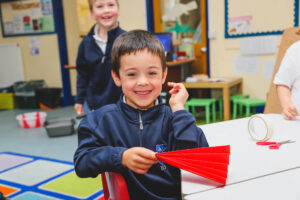There have been two very different sporting events this week which have captured my interest: the Australian ball-tampering debacle and the ECS Senior Swimming Gala.
The national (international?) smirk of schadenfreude at the lambasting of the Australian Cricket XI (well, II) is not a desperately attractive nor admirable quality, but it is certainly the case that the cricket world (players, coaches, fans, pundits) have made clear the fact that the Old Enemy has been caught cheating. The controversy centres around one of their quicks using some yellow sticky-tape and dirt from the ground (à la sandpaper) to alter the condition of the ball. Roughing it up on one side means you get more movement in the air as the ball swings, making deliveries harder to read and harder to play. My childhood is peppered with cricketing memories: my first four (a very classy hook shot – rolled-wrists and everything – just backward of square, playing for the U13s as a Year 7); my first run-chase (1 required off the final ball – which we got as a bye); my first dropped catch (fielding at mid-on – not a good feeling, but one with which I became depressingly familiar until about Year 9); my first absolute stunner of a catch (a gazelle-like one-hander at silly-mid-on for the U15s); my first six (batting with my Dad for the St Florence XI in Pembrokeshire in about Year 8); my first 50 (I was clean bowled the very next delivery); my first 10-over opening spell (I bowled 10 wides in that game, and my friend Chris dropped an absolute sitter at strategically-placed deep mid-wicket off a jaffa of a bouncer); my first appearance as an off-spinner (playing for the staff team at my previous school – LBW off the first delivery during a final-over run-chase by the opposition: death-bowling at its finest); and, in less important cricketing spheres, the furore surrounding the ball-tampering exploits of the England team (Michael Atherton’s dust-in-the-pocket of the mid-nineties), the Pakistanis about ten years later (where they refused to come back out after tea in protest, thereby forfeiting the test), the Indian team (a cough sweet and sticky saliva) in 2004, Stuart Broad’s spikes being used to damage the ball in 2010, and I’m sure I remember something about a bottle top in the early 90s. The Australians are certainly not the first team to be caught trying to change the condition of the ball, but their keen rivalry so with so many of their opposition teams, the emotive press conferences and the (within the last half hour) resignation of the national coach has meant that this is a cheating incident ringing loud in our ears.
It was with the recent cheating scandal fresh in my mind that I went to the Inter-House Swimming Gala on Monday. I had the opportunity to be pool-side, front of house and up in the gallery at various points during this (fabulously-organised – thank you, Miss Norris) gala, and it occurred to me from the little viewing balcony up in the gods, whilst watching the relay, that the opportunity to cheat and to get a half-a-yard head-start at the change-over was really very present. Surely no-one would notice if you pushed off half a second or so before the in-coming swimmer had touched the end? No-one was even looking. It would be so easy. And you’d probably win. And yet no-one did. Not one swimmer (and I know because I started watching intently at that point) left the wall early. It struck me that here was an exemplary model of sporting behaviour: train hard, compete hard, want to win, but want to win fairly.
Handing out sports colours and trophies at this morning’s Final Assembly in the Chapter House, I was again reminded of the huge value that is placed on team spirit, inclusiveness and fair-play at ECS. The build-up to ‘player of the year’ for each team is always quite exciting, and my favourite moment from this morning’s presentations was catching out of the corner of my eye the little celebratory air-punch that one of the Year 4 hockey boys instinctively did when the player of the season for his team was announced. It wasn’t him who had won it, but he was so pleased for his team-mate that he celebrated quietly to himself. That, I thought, is a sign that this a place where children understand that values and character matter every bit as much as attainment. I come back to this a lot, I acknowledge, but the job of a really good school is to work with families to help pupils acquire the right habits for life. The habits I saw displayed in the pool and in the Chapter House reassured me that we are doing just that.
James Featherstone







